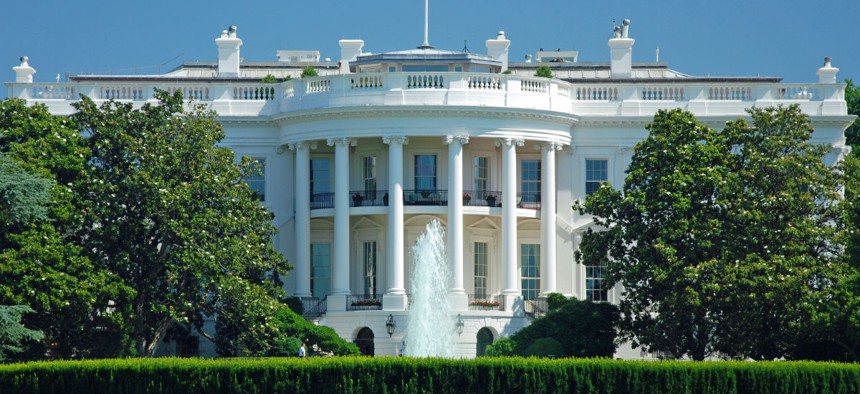Want to Be A White House Leadership Development Fellow?
Agencies need to nominate their top career leaders for the program by June 6.
Agencies have to nominate their top federal managers by June 6 for the second class of White House Leadership Development Program fellows, who start their year-long stint in October.
The program, for GS-15s and the equivalent, gives emerging agency leaders poised for the Senior Executive Service an opportunity to spend a year working on management priorities and goals identified by the administration. Agencies can nominate between two and four employees for the fellowship, which also includes weekly leadership development sessions.
“All candidates are expected to be high-performing employees (with annual ratings of 'exceeds expectations,' or the equivalent, or higher) with demonstrated commitment to public service,” said the description of the leadership development program on the White House website. “Candidates must also have an interest in stepping outside their current lanes to develop an enterprise viewpoint of government and a willingness to take on a variety of roles and work to further the mission of the cross-agency initiatives that serve as rotation assignments.”
The selection process for the fiscal 2017 WHLDP fellows starts around June 27, and successful candidates will be notified by July 29.
President Obama created the White House Leadership Development Program in 2014, announcing it during a rare live speech to senior executives, in which he outlined his initiative to modernize the SES to improve government. The first group of fellows started in November 2015.
Susan Camarena, who is part of the inaugural class of 16 fellows, praised the experience. “We’ve all benefited from tapping into each other’s experiences and skills,” said the chief knowledge and learning officer at the Federal Transit Administration, her home agency. Camarena has been working with 14 different agencies on promoting STEM (Science, Technology, Engineering and Math) education from primary to graduate school, helping agencies to collaborate and better leverage their resources to accomplish administration goals. “I always joke that I could not spell STEM when I got here,” said Camarena, who has a background in organizational knowledge, decision-making and strategic planning.
WHLD fellows have worked on a range of cross-agency priority goals and administration initiatives, including veterans’ mental health, strengthening the SES, climate change and federal hiring reform.
Camarena said her class will help onboard and mentor the incoming fellows, encouraging them to “take advantage of things earlier than we did.”
NEXT STORY: After ISIS, Americans Fear Cyberattacks Most








